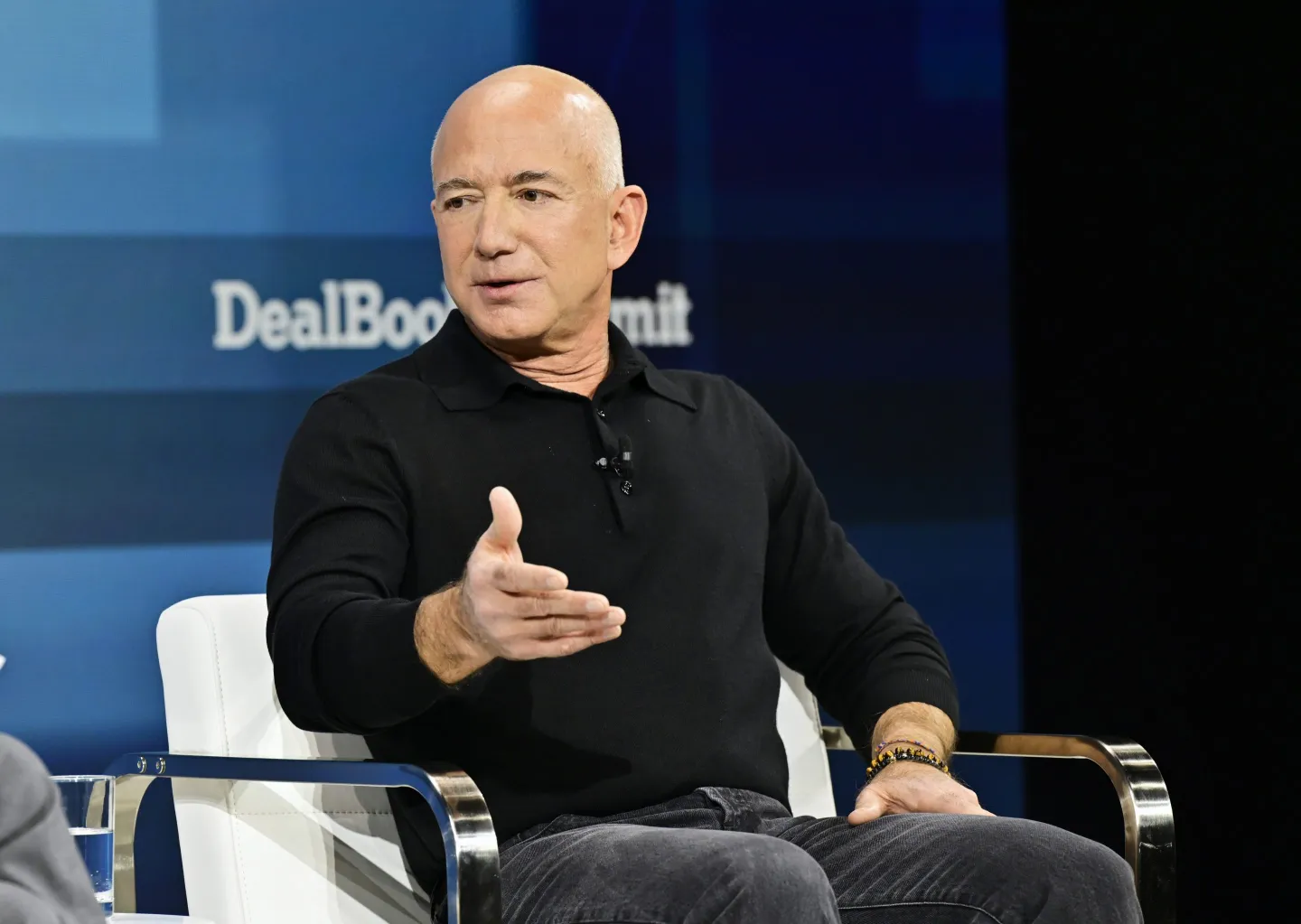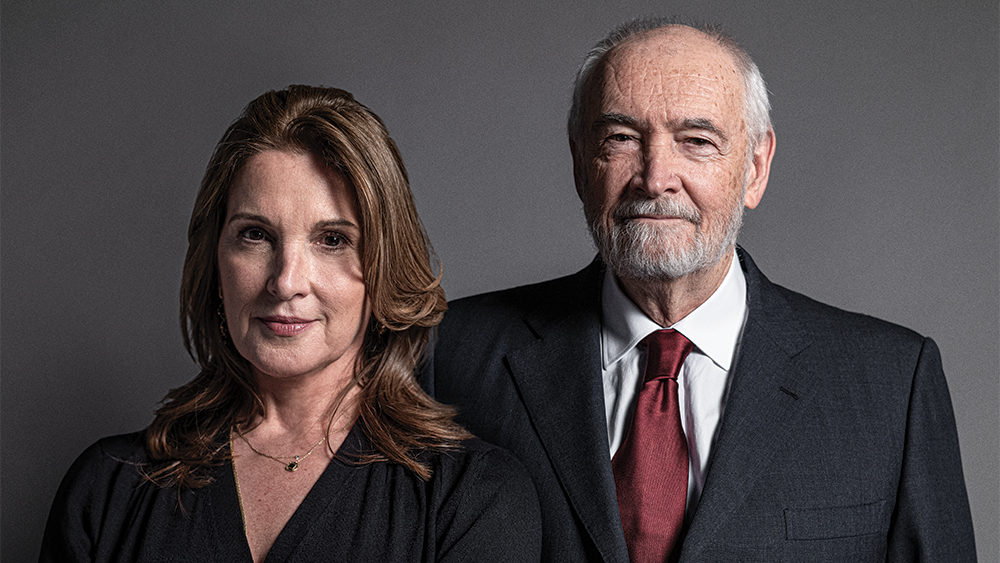Un-Bonded – What Amazon’s Takeover Means for 007

Back in 2022, US conglomerate Amazon, notable primarily as an online retailer, paid handsomely for the distribution rights to the venerable UK film franchise James Bond, with the expectation that they would reap the rewards of multiple billion-dollar entries similar to Skyfall, Spectre, and the dour No Time to Die. While the rights to the property had variably been held by a number of studios, notably the perpetually financially troubled MGM, creative control had, until now at least, always rested with Barbara Broccoli and her stepbrother Michael G. Wilson, heirs of original rights co-holder Albert “Cubby” Broccoli.
Amazon had evidently intended to commence production on new Bond films straight away, but the highly protective instincts of Broccoli and Wilson have, according to reports, caused considerable behind-the-scenes friction between the pair and MGM’s new parent company, Amazon, run by one of the world’s wealthiest men, Jeff Bezos. This week, Amazon ponied up a reported billion-dollar offer for Broccoli and Wilson to relinquish creative control of the Bond franchise, which had been floundering since the 2021 release of No Time to Die, Daniel Craig’s final outing as the veteran MI6 spy. As of the time of writing, no announcement has been made regarding a replacement actor for the role, nor has a script or director been attached to bring a new film to fruition.
The fact that Broccoli and Wilson had held creative control for so long was both a blessing and a curse for the franchise. The pair were often incredibly controlling of every decision regarding the IP, much to the frustration of directors like Skyfall’s Sam Mendes, who rejected an offer to return to the franchise after problematic interactions with the producers over his own vision. The positives of this controlling nature meant that Bond was never going to become homogenised or strip-mined for parts, which is what I fear will now happen under Bezos and his expedited-shipping empire, unrestrained by the stewardship of Broccoli and Wilson.

In some quarters, Broccoli and Wilson were also seen as suffocating the future of Bond with their strict requirements that the films be almost entirely UK-sourced—particularly the actor cast in the lead role, a quintessential element of the franchise that has stood the test of time for six decades. Their failure to inject fresh blood into the property following Daniel Craig’s departure, or at least to formulate a clear plan to move the franchise forward, was problematic not just for fans but for an increasingly frustrated Amazon Studios, which was eager to push ahead with another instalment.
As a longtime Bond fan, the prospect of Amazon having complete creative control over the franchise fills me with dread. Almost every major IP in the last twenty years has suffered an explosion of tie-ins and spin-offs, notably the enormously successful Star Wars, Marvel, and DC brands, to say nothing of Harry Potter, Terminator, Alien, Predator, Jurassic Park, and others—most of which have spawned innumerable sequels, midquels, and adjunct content designed to cater to every possible demographic. This dilution of venerable franchises, the proliferation of expanded universes, works well with some IPs but far less effectively with others. Franchises like Fast & Furious, DC, and Marvel thrive on an expanded roster of characters who naturally weave in and out of each other’s stories. Meanwhile, Alien seems to have lost its way amid attempts to widen the universe established by Ridley Scott by removing the very thing audiences wanted to see—a ferocious monster carving its way through a small human ensemble in a hostile, inhospitable location.

Speaking to someone over the weekend, I explained that a property like Alien succeeded not because of ancillary characters but rather because of one—Ellen Ripley—battling a mythical monster of our collective nightmares. Expanding the premise beyond that core dynamic often leads to diminishing returns. Half the problem with Alien 3 (among other things), Resurrection, Prometheus, and Covenant was that they moved the franchise away from the elements fans truly wanted—a small-scale survival horror film, where fear is the primary motivator—and instead attempted to expand the wider universe of the Xenomorphs, stripping away their mystery in the process. Alien arguably remains the poster child for how not to handle a franchise. Removing the enigma surrounding the creatures, their origins, and their biology shatters the grimacing terror of Ripley being trapped aboard the Sulaco’s escape pod with one lurking inside. Pull back the veil, and you destroy the illusion.
In this era of streaming-driven content proliferation, this kind of veil-pull is often a shortcut for uncreative storytellers to mine the existing goodwill of a known property, providing fans with “more” of what they love—without them actually loving it. The Marvel universe, for example, has faltered critically since its foray into small-screen Disney+ content, coupled with a by-the-numbers feature film slate that, for the most part, hasn’t kept fans as engaged as they were around 2018–2019. The rebooted DC Studios faces a mountain of public discontent following the departure of Zack Snyder’s universe, with James Gunn’s Superman in 2025 acting as a make-or-break moment. Gunn, however, seems savvy enough to avoid flooding the market with subpar, ill-conceived projects. The same cannot be said for Star Wars, whose Disney+ content started strong but recently has largely felt uneven. This, I fear, is the future that awaits James Bond.

While Amazon may attempt to MCU-ise the Bond legacy and establish a series of interconnected feature films similar to the Daniel Craig entries, what concerns me most is what they might do to populate their streaming platform. After all, they might look at Bond and wonder if a Moneypenny limited series could work. Or perhaps an origin story for SPECTRE, or some other unnecessary prequel. Now, despite my misgivings, I acknowledge that such ideas could work if entrusted to engaged, creative filmmakers with a clear vision. However, I fear that Bond will simply become another KPI-driven ROI filler on Amazon Prime, inundated with uninspired midquels, sequels, and reboots that capitalise on nostalgia while failing to understand what made the character beloved in the first place. Consider, for example, Amazon’s Lord of the Rings spin-off, The Rings of Power. While it aligns with Peter Jackson’s sextet of Middle-Earth films, the series lacks the emotional weight of the feature films and relies heavily on implied iconography and fan service, to its detriment. Hardcore Rings fans may appreciate Galadriel’s backstory, but The Rings of Power has largely been a non-event—even for devoted followers of Tolkien.
In my opinion, James Bond is one of those IPs that cannot sustain a multi-pronged expansion. Characters like M, Q, and Moneypenny have always been supporting roles—exposition vehicles to facilitate Bond’s missions, nothing more. Nobody is clamouring for a Moneypenny origin story or a political thriller about M’s rise to MI6 chief, because without Bond, these stories simply lack the allure Amazon so desperately seeks. It’s why I have reservations about the upcoming Ballerina, a John Wick spin-off starring Ana de Armas. Touted as a “From the World of John Wick” entry—likely featuring a cameo from Keanu Reeves—will de Armas’ character resonate with audiences as much as Wick himself? Or will this be just another also-ran unworthy of the Wick name? I expect it to be a solid film nonetheless, and I’ll be there to see it, but Hollywood’s track record with spin-offs does little to assuage my concerns.

The insatiable need for studios and corporations to saturate streaming platforms with new content drives much of the homogenisation and creative mediocrity we scroll past each night. Increasingly, big-budget projects are derivatives of existing IPs—some excellent, many dreadful—engineered to provide a quarterly stock price bump for Netflix or Amazon. It’s not about storytelling; it’s about shareholder dividends. Now, more than ever, James Bond risks becoming a mere commodity. And the glee with which Bezos recently asked fans for their suggestions on who should play the next Bond? That absolutely made my blood run cold.
